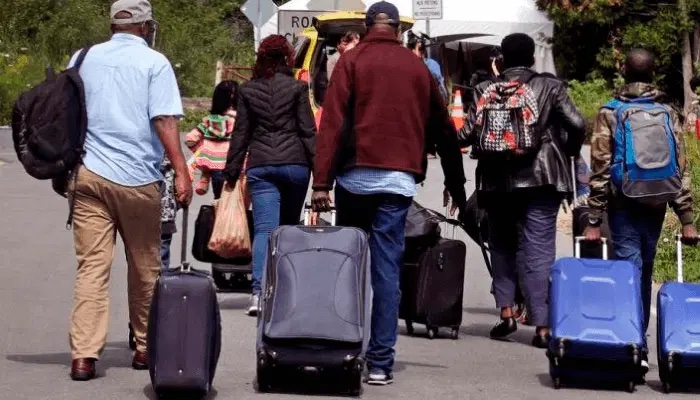The United Kingdom has introduced a new wave of immigration rules affecting families, students, and seasonal workers, as part of efforts to reduce dependence on low-wage foreign labour and tighten border controls. The changes, announced by the Home Office in October, take effect from November 11, with additional phases to be implemented through 2025 and 2026.
From January 2026, foreign nationals applying to work in the UK will be required to demonstrate English proficiency at A-level standard. The requirement will apply to selected visa categories, as part of a broader effort to ensure that migrants are adequately prepared to integrate into the UK workforce. Applicants must also provide proof of sufficient financial means before submitting their visa applications. Those relocating to London must show evidence of £1,529 per month for up to nine months. Applicants studying outside the capital will need to show at least £1,171 per month. Financial records must confirm that the applicant has maintained the required funds for 28 consecutive days prior to the date of application.
Mandatory Visa Refusals for Criminal Convictions
From November 11, visa applications from individuals with serious criminal convictions will face automatic refusal.
The Home Office has ended previous discretion that allowed certain offenders to qualify after a set period.
Any applicant who has received a custodial sentence of 12 months or more, regardless of when the offence occurred will now be refused a visa.
The new “suitability rules” also give immigration officers broader authority to deny applications based on prior overstaying, deception, illegal entry, or breaches of visa conditions. Persistent offenders or individuals deemed to have caused serious harm will be deemed ineligible for entry.
Read Also: Charity says immigration fears are manufactured panic
Greater Flexibility for Seasonal Workers
Seasonal horticulture workers will benefit from relaxed re-entry rules under the new system. Workers in this category can now remain in the UK for up to six months within any ten-month period, rather than being limited to six months in a full calendar year.
The Seasonal Worker Visa Scheme has also been extended until 2029, providing long-term stability for the agricultural sector and helping farmers better plan for different crop cycles. The Home Office said the change will ease labour shortages and allow for more flexible deployment of seasonal workers across planting and harvesting seasons.
New safeguarding measures will affect family visa applications submitted from November 11.
Under the updated rules, Home Office caseworkers are required to automatically refuse applications where there is credible concern that a parent or partner poses a risk to the applicant. This measure aims to strengthen child protection and uphold the UK’s commitment to family safety within the immigration process.
A Home Office spokesperson said the new framework forms part of a broader immigration reform aimed at ensuring fairness, accountability, and long-term sustainability.
“These measures are designed to ensure that migration works in the national interest, protects public safety, and supports a high-skill, high-wage economy,” the spokesperson said.
The UK government maintains that the reforms will reduce exploitation, encourage self-reliance, and prioritize applicants with stronger qualifications and clean records.



